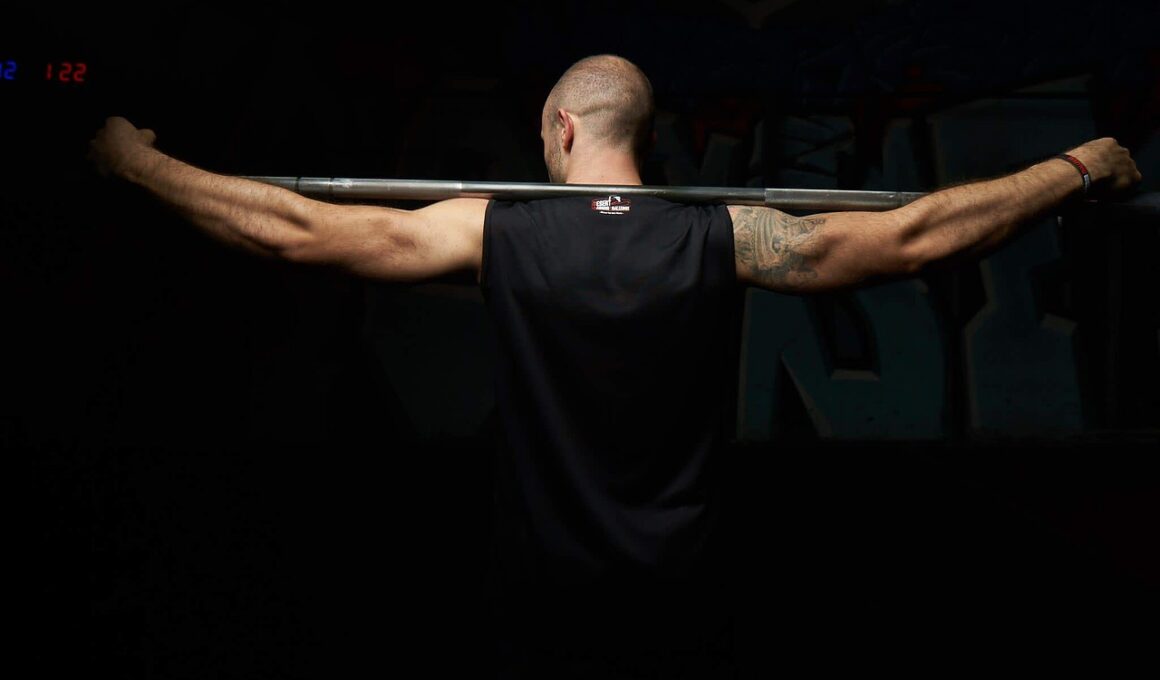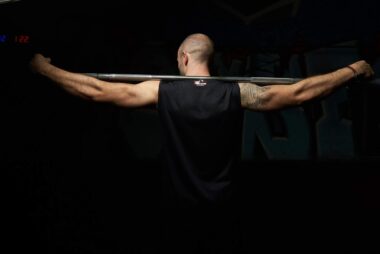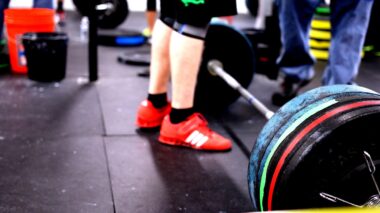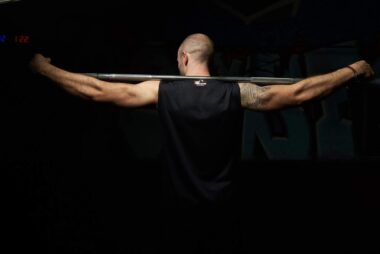Mental Preparation for Powerlifting Competitions
Mental preparation is as crucial as physical training in powerlifting competitions. Athletes often underestimate the impact of their mental state on performance. One of the key elements of mental preparation involves building mental resilience. Resilience helps powerlifters face challenges and setbacks without losing motivation or focus. Training your mind is equally important as hitting the gym. Visualization techniques can significantly enhance an athlete’s performance. Through visualization, powerlifters can create a mental image of successful lifts, integrating positive experiences into their daily training. This can lead to greater confidence and improved results on competition day. Additionally, establishing a consistent mental regimen prior to competitions can decrease anxiety and stress. By developing a routine that includes mindfulness, breathing exercises, and focus drills, athletes can create a calm and centered mindset, improving their overall energy and concentration. The combination of physical and mental preparation enables powerlifters to perform their best, unlocking their full potential. Pay attention to your thoughts and self-talk leading up to competitions, as these can heavily influence not only your performance but your enjoyment and fulfillment in the sport as well.
Another valuable aspect of mental preparation is setting realistic and achievable goals. Clearly defined objectives shape training sessions and competitions, providing a sense of direction and purpose. Establishing specific, measurable, attainable, relevant, and timely (SMART) goals can lead to increased engagement and motivation. Athletes should break down their larger goals into more manageable, short-term objectives for a more structured approach to training. These smaller goals allow for tracking progress, leading to celebrations of small victories that can enhance motivation. Importantly, it is essential to remain adaptable, allowing for changes to these goals based on performance and recovery. Furthermore, incorporating mental imagery techniques aids in refining techniques and lifting strategies. Powerlifters can mentally rehearse correct form and techniques, reinforcing muscle memory, which is crucial when under competition pressure. Reflecting on past performances, both successes and failures, can provide valuable insights and drive improvement. This reflective practice promotes continuous learning, enhancing both physical and mental aspects of preparation. Engaging with a coach or a sports psychologist can also help clarify goals, fortify mental toughness, and develop coping strategies, thus reinforcing the essential connection between mental and physical preparations.
Positive Mindset Cultivation
Building a positive mindset is essential for success in powerlifting. Athletes need to cultivate positivity both in their training and their daily lives, as it plays a significant role in mental preparation. Maintaining a supportive environment is vital, as the interactions with training partners, coaches, and friends can greatly influence an athlete’s mindset. Surrounding oneself with positivity, encouragement, and constructive feedback can promote a more productive training atmosphere. Additionally, positive self-talk is a powerful tool that can greatly enhance performance. Athletes should practice affirmations and gradually shift negative thought patterns to foster a stronger, more resilient outlook. Learning to engage in positive self-talk during training will prepare athletes for high-pressure situations during competitions. One strategy involves creating a list of personal achievements and strengths to review regularly, helping to fortify self-belief and confidence. Journaling about training experiences also helps to clarify emotions and thoughts surrounding performance, encouraging growth. Compiling a “victory log” of achievements, no matter how small, can serve as a consistent reminder of success and hard work. This method builds self-assurance and ultimately translates to elevated performance in competitions.
Moreover, managing pre-competition anxiety and stress is crucial for peak performance in powerlifting. It’s common for athletes to feel nervous before an important competition, but how they manage these emotions can determine their performance on the day. Implementing relaxation techniques, such as deep breathing, meditation, or progressive muscle relaxation, assists athletes in maintaining calmness and focus. Practicing these techniques regularly can build familiarity, leading to better performance under pressure. Creating a routine when preparing for competitions can provide stability and predictability, helping to ease nerves. This includes everything from the warm-up protocol to the food consumed on competition day. Involving all senses in the preparation process, from mental imagery to visual cues, can significantly increase confidence levels. Familiarity with the competition venue is also advantageous. Arriving early on the day of the event and visually inspecting the space can reduce uncertainty and anxiety. Athletes can also utilize visualization techniques in this context, picturing themselves executing successful lifts in the actual venue. These strategies significantly enhance mental readiness and contribute positively to overall performance.
Community and Support Systems
Athletes need a strong support system when preparing for competitions. Engaging with fellow lifters can create a sense of community that promotes motivation and accountability. Sharing insights, experiences, and challenges with others can foster an environment where athletes thrive. Seeking support from coaches or training partners leads to constructive feedback, which is essential for both physical and mental growth. Additionally, engaging social media platforms dedicated to powerlifting can provide encouragement and additional resources for mental preparation. Numerous communities offer online support, motivation, and advice tailored specifically for powerlifters, making it easier for athletes to connect with like-minded individuals. Finding a mentor or a seasoned competitor can also provide invaluable knowledge and confidence to newer lifters. Participating in local competitions to connect with others can make the journey rewarding and enjoyable. This network not only helps in overcoming mental barriers but creates long-lasting friendships anchored in shared experiences and aspirations. Ultimately, having a strong community often boosts resilience, encourages athletes to persevere in training, and fosters a sense of belonging that is essential for mental wellness.
Another facet of preparation involves establishing a strong post-competition routine. Athletes can aid their mental recovery after competitions by reflecting on their experiences and performances. Evaluating what went well and identifying areas for improvement contributes to a powerful learning journey. This is beneficial for future competitions and ongoing growth in the sport. Regular reflection allows powerlifters to integrate learnings and fosters a growth mindset. Engaging in recovery techniques, such as active stretching, foam rolling, and nutrition will support both physical and mental health. Self-care practices are crucial for maintaining motivation and engagement in training. Additionally, taking a short break post-competition can offer valuable time for mental recovery while reigniting motivation. Finally, committing to ongoing education and skill development enhances the overall experience within the sport. Pursuing workshops, certifications, or learning from experts will stimulate continual growth, keeping athletes energized and inspired toward their goals. Establishing a solid transition back into training is key, thus minimizing burnout. This balanced approach to competition and recovery promotes a healthy mindset toward achievements, ultimately enhancing long-term athletic success.
Conclusion and Future Goals
In conclusion, mental preparation is an invaluable element of success in powerlifting competitions. Athletes can significantly enhance their performance by focusing on building resilience, fostering a positive mindset, engaging with support systems, and reflecting post-competition. Furthermore, developing a structured approach toward mental training that includes techniques such as visualization, affirmations, and relaxation exercises can empower athletes to face competitions better. The mental game often dictates athletes’ experiences in powerlifting; thus, its importance cannot be overstated. As you pursue your lifting goals, remember to prioritize mental health and well-being. Empowering oneself mentally often translates to physical strength and success on the platform. Setting realistic, achievable goals will keep motivation high and provide direction. Investing in personal growth through education and self-reflection fosters resilience and perseverance amid challenges. Remain adaptable to changes and spark positivity in your training environment. Finally, surround yourself with a supportive community that uplifts and emboldens your journey as a powerlifter. By fully integrating mental preparation into your training, you will maximize both your potential and enjoyment in the sport, laying the foundation for continued accomplishments.





